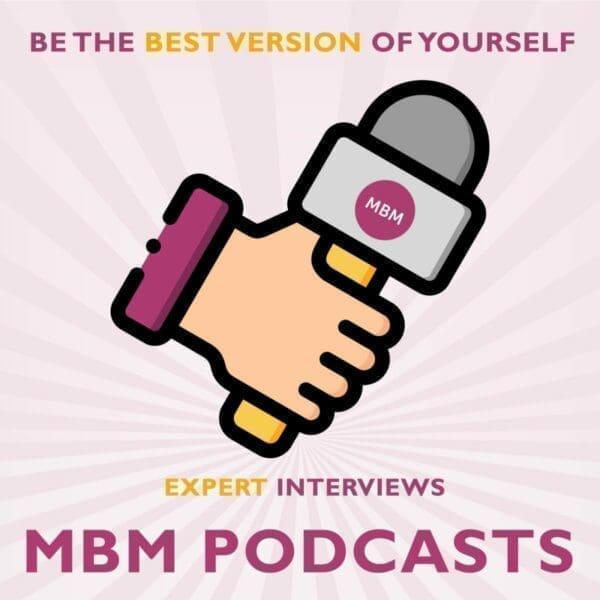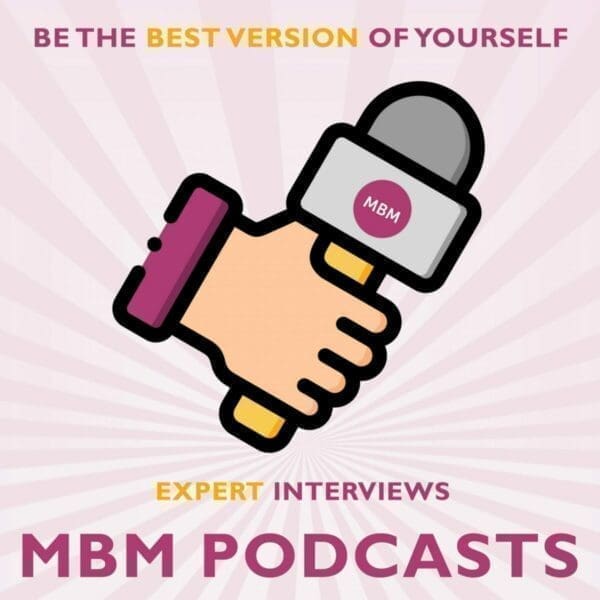Podcast: Play in new window | Download
Grocery Guru Ep13: The Basic Principles of Negotiating
Join Andrew Grant and Darren A. Smith in the thirteenth episode of Grocery Guru: The Basic Principles of Negotiating and the Squredance.
You Can Read the Full Principles of Negotiating Episode Transcript Below:
Darren A. Smith:
Welcome to week 13 of the Grocery Guru, and we are with Andrew Grant. Andrew, hello.
Andrew Grant:
Good morning, Darren. How are you?
Darren A. Smith:
Hey, I’m good, I’m good. Lockdown, blah, let’s not go through that. We’ve got a few weeks to go, vaccine. Let’s talk about Grocery, what’s going on in the world of Grocery this week?
Andrew Grant:
Well, it’s been a quiet week, actually. You look at the news-wise, not very much has happened, actually. Nothing stands out. So I thought maybe we’d talk about, I think we did mention it last week in the end. Let’s go back to basics. Let’s talk about negotiation 101.

Darren A. Smith:
Oh, negotiation 101, okay. Now, recently I wrote an article in The Grocer, name-drop, about negotiation. And a couple of people wrote to me on LinkedIn and said it was very good. It was about me selling my wife’s Beetle. And short story, the guy, we took it out for a spin and he said to me, while he was driving the Beetle, he said, “You know I want to negotiate.” I said, “Yeah, brilliant.” And we came back here, this is my house. And we’re looking around the car, as two men do, and I know nothing about cars. We’re kicking the tires. And he said, “Right, I’m ready to negotiate.” And I said, “Cool.” And I pushed the price up by 250 quid. And he said, “No, no, no, we were going to negotiate.” I said, “I am.”
Andrew Grant:
A little bit cheeky, a little bit cheeky. I’d suggest if you’re a small supplier to a Tesco, you don’t do that. But fair enough. I think in the world of cars, there are no rules.
Andrew Grant:
But no, I was reading an article in one of the Sunday papers about the Brexit deal. And they were saying that the deal was only done because the EU convinced themselves that Boris was mad enough to go through with a no-deal. So effectively, that Boris was willing to cut his nose off to spite his face. And it was only because they were convinced he was willing to do something almost illogical that they came to the party. And it just got me thinking about, I always remember being told, taught, “Never threaten something you’re not willing to carry through.”
Darren A. Smith:
Absolutely, yeah.
Andrew Grant:
Because if you get called out on it, that is your credibility gone forever and a day.
Darren A. Smith:
Well, and that’s it. And you’ve lost the negotiation, but not only that, you’ve lost the relationship long-term. Because every time you ever bluff in the future, they’ll say, “Yeah, we’ll call it.” Yeah, I’d agree.
Andrew Grant:
Yeah, and I think that’s probably the critical thing when it comes to supermarket negotiations, hopefully, they’re not just one-offs. You selling your wife’s car is a one-off, clearly, you didn’t mind if you upset the other guy.
Andrew Grant:
Yeah, hopefully, you’ll never see him again. But yeah, if you’re hoping to have a long and fruitful supply relationship with a supermarket, you really do need to get into that win-win zone. Into a lose-win, or even… Yeah, win for the supplier, lose for the supermarket, probably not a good long-term option.
Darren A. Smith:
No, no. And there’s Steven Covey, in his 7 Habits of Highly Effective People, talks about in the habit win-win. A great story, where it goes through win-win, or win-lose, or lose-win. And he talks about the long-term effects of that. Because lots of people talk about win-win, but actually what they’re sort of thinking is win-die, “I’m going to take as much as I can, and the rest can go poke it.” But Covey puts it really, really well. So I’m going to recommend the audio version of that habit.
Andrew Grant:
Okay, yeah. Because yes, I think you’re right. I think when people start negotiating, and certainly, I’m sure we can both remember 21-year-old buyers pumped full of testosterone or what have you. It was negotiations about being aggressive. Negotiations about thumping the table, and threatening delists, and what have you. And it’s only as you get a bit more mature, a bit more experience, do you realize, “Actually it’s not about that.” It’s not about putting the Arnold Schwarzenegger underpants on in the morning. It’s actually about being quite creative and being sensible about your negotiation plan.
Darren A. Smith:
And that makes me think that rather than aggressive, forceful, scary, which are the words that people often associate with negotiation. You’re absolutely right, I’d like to add words like curious, exploration, creative, innovative. They, for me, are much more effective negotiators.
Andrew Grant:
Yeah, I think it’s about planning. I mean, you’d never walk into a negotiation without a plan. And coming back to the Boris situation. Yeah, they talked about the whole of that four-year Brexit period was about red lines. And whether Theresa May would cross her red lines, and whether Barnier would cross his red lines. It’s important you have the red lines in the right place. And going back to what I said at the start, that you don’t set red lines which you then cross, because your credibility is gone. “That’s my final price. Oh no, yeah, I’ll give you a discount.” You have no credibility in the future. So I-
Darren A. Smith:
It’s a little bit like my wife was buying a leather coat on eBay. And she said, “No, I’m not going to spend more than £65, it’s not worth it.” And then she was bidding with this guy and ended up spending £77. Right past the red line, it was in the rearview mirror.
Andrew Grant:
Yeah. So yeah, no, yeah, be careful where you set those red lines. And, I guess, in the spirit of win-win, and we have said it before, it’s being creative with what you negotiate about. Because I know we often play that game of, “Darren, I’ve got a £10 note here, will you give me 20 quid for it?” And you go, “Why would I give you 20 quid for a £10 note? I’ll give you a fiver.” And £10 is£10. If we try and negotiate just on £10, one of us is going to lose, or we’re going to have the world’s biggest argument.
Darren A. Smith:
Which often happens, doesn’t it? Negotiators go into that negotiation, then they’re surprised when they’re in this head-to-head on price. Because they haven’t got the variables, the tradables, the gives the wishes, whatever you call them. And I know you and I term that as the grease that keeps the engine moving.
Andrew Grant:
Yeah.
Darren A. Smith:
And without those, you just bang.
Andrew Grant:
So I guess it’s a good introduction, as we were talking about negotiation 101. A good point for you to spend 15 seconds talking about our wonderful Squaredance tool, and where it came from.
Darren A. Smith:
Ooh. So the Squaredance is a simple template, and it encourages you to prepare for your negotiation, and it will give you confidence. My experience of watching people prepare for negotiations, is they start with PowerPoint. PowerPoint is not a negotiation preparation tool, it’s a presentation tool. So you and I built Squaredance, and people are finding it fabulous. That was more than 15 seconds, wasn’t it?
Andrew Grant:
No, but it is. And I guess we do these things to sell some courses and get some people working with us. And I think the Squaredance is one of the better tools out there, in the basis of its simplicity. But also the fact it comes out with something very focused, and very practically useful for anybody going into, actually, almost any sort of negotiation. Even if it is buying a used car privately, or negotiating with one of the supermarkets.
And I guess in the current climate, coming back to the news, there are all these reports of Brexit delays, and meat and fish rotting in Rotterdam. There’s a lot of extra costs as a result of the friction caused by the new rules. I’m sure there’s a lot of suppliers out there thinking about, “How do I approach my supermarket customer with a price increase this spring?” And that’s inevitably going to come down to a negotiation at some point.
Darren A. Smith:
Yes, it is. And you and I have seen learners over the years increase their confidence through preparation, which is typically where confidence comes from. And they go into that negotiation with a much better approach and attitude. Because it’s less this, and it’s much more, “How can we work together? Here’s a bunch of questions I’m going to ask you to seek information.” In order to then get to stage three, four, which is around the proposal, and summary. And, “Okay, we’ve come out the other side, and we haven’t just beaten each other up on price.”
Andrew Grant:
Yeah. And I guess from the individual’s perspective that often, I always make the analogy, “Maybe you shouldn’t mention Jurgen Klopp after last night’s result.” But Jurgen Klopp, Guardiola, Jose Mourinho, they don’t just say to their players, “Guys, we’re playing so-and-so tomorrow at 5:00. Rock up at quarter to 5:00, get your shorts on, get your boots on. Let’s go out and play.”
Andrew Grant:
They practice, and they plan, and they practice, and they plan ad infinitum. So yeah, often we speak to national account managers, who the finance director has the bright idea of, “Oh, let’s put a 10% cost price increase through.” And the national account manager is sent over the barricades, literally with no practice, or planning and they have no armour. And obviously, some of the stuff we can give them, I think gives them confidence. Because they feel, “Look, we’ve got our suit of armour around us. We’ve got our Squaredance, we’ve got our tradables plan. We’ve got all the tools around us, therefore we’re properly clothed for what we’re about to go into.”
Darren A. Smith:
Yes. Yes, you’re absolutely right. Absolutely right. We want to help them be the best version of themselves and the Squaredance. So if anyone is looking for the Squaredance, it’s obviously an [inaudible 00:10:11] word. So you should be able to type it into Google, just put MBM on the end. You’ll find the article, you can download it absolutely free. We’ve put it out there as a template. It’s taken Andrew and I best part of a lot of years to build and refine, we know it works. Best of luck with it. Andrew, any final words before we depart?
Andrew Grant:
No, I think you just said it. I think, hopefully, the Squaredance is relatively self-explanatory. But of course, there’s, yeah, no substitute for picking up the phone, or dropping us an email, and letting us help you.
Darren A. Smith:
Cool, lovely. Andrew, until next week, you take care.
Andrew Grant:
Yeah, cheers. Bye.
Darren A. Smith:
Cheers, bye. Bye.
For more, check out our YouTube video.




